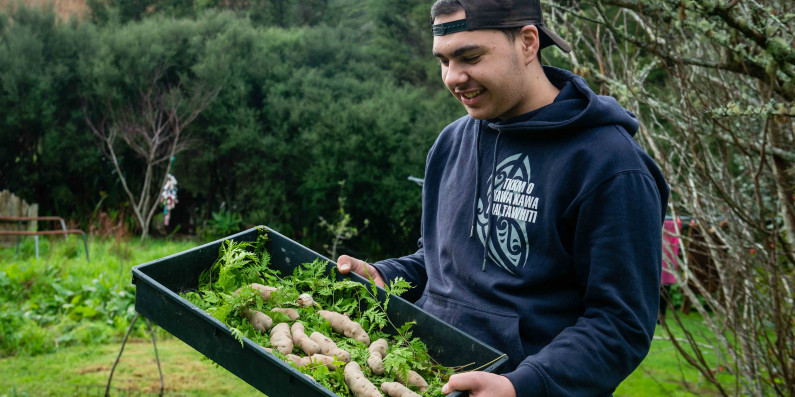
Reducing food waste
Globally an estimated one third of all the food we produce is lost or wasted between farm and fork each year. That’s 1.3 billion tonnes of food that is never eaten.

Globally an estimated one third of all the food we produce is lost or wasted between farm and fork each year. That’s 1.3 billion tonnes of food that is never eaten.
The Ministry for Social Development provides support for the food rescue sector through its Food Secure Communities programme.
In addition to funding local community food providers, the programme also helped to establish three national partner organisations:
The Ministry for Primary Industries administers the Food Act 2014. MPI has developed advice on:
These pages provide useful information on:
The Ministry has developed a definition for food loss and waste in Aotearoa New Zealand.
The definition supports government initiatives including:
Imported or domestically produced food and drink, including inedible parts, which leave the food supply chain from the point that crops and livestock are ready for harvest or slaughter onwards to the point of consumption, to be recycled, recovered or disposed of in Aotearoa New Zealand.
The Government encourages anyone planning to measure food loss and waste to consider using this definition. This is so that measurements are conducted consistently across Aotearoa.
Find further information in Food loss and waste definition for Aotearoa New Zealand
We are establishing a baseline measure of food loss and waste across Aotearoa.
The initiative is in response to a recommendation by the Environment Committee in its March 2020 report.
The research is to be carried out by the University of Otago and will measure:
Findings are expected to be published in early 2024.
Read the Environment Committee's March 2020 report [New Zealand Parliament website]
Read the Government response to the report
In 2023, the Government announced plans to get businesses ready to separate food scraps from general waste by 2030. The proposal was one of three the Ministry consulted on as part of the Transforming Recycling consultation.
This work is being progressed alongside proposed new waste legislation. Once in place, it is likely that the proposed requirement will affect most businesses and organisations that produce waste.
For more information on the scheme see Improving household recycling and food scrap collection
Our Ministry has supported a number of initiatives to reduce food waste through the Waste Minimisation Fund (WMF). Some projects and organisations we have supported include:
The 2021 round for the WMF included investment signals for improved tools to avoid food waste and increased domestic capacity of existing food rescue organisations.
We sought expressions of interest from organisations interested in developing and delivering national programmes to reduce food waste.
The call for expressions of interest closed on 4 December 2022.
The work involves designing, developing and delivering programmes that reduce food waste over a three-year period.
The programmes will aim to reduce food waste in three settings: households, Māori-led settings (such as marae, kōhango reo, kura kaupapa, papakāinga), and businesses.